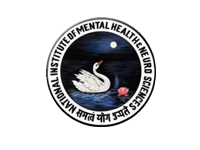All India Institute of Medical Sciences (AIIMS), New Delhi is the most prestigious medical institution in India and has held the top spot in the NIRF medical ranking for many years. Its excellence is rooted in several factors: the scale of patient care (large hospital with high patient inflows gives students exposure to a wide variety of clinical cases), strong faculty across specialties, excellent research output, well-equipped laboratories, infrastructure, and reputation both nationally and internationally. As the pioneer AIIMS, the standard set by AIIMS Delhi often becomes the benchmark for others. The MBBS program here is rigorous, with emphasis not just on medical knowledge, but also on ethics, patient care, and research. It has great resources for advanced diagnostics, super-speciality care, and opportunities for undergraduate students to engage in research and community health. The cost of MBBS is relatively low (especially in government institutions) and the prestige of graduating from AIIMS Delhi opens doors both for postgraduate admissions and competitive opportunities.
Post Graduate Institute of Medical Education & Research (PGIMER), Chandigarh comes second in the NIRF 2025 ranking among medical colleges. PGIMER has a unique character: although the name highlights postgraduate education, PGIMER also offers excellent clinical and undergraduate exposure via its associated hospitals. The facility is known for advanced clinical care, super-speciality departments, research output, faculty credentials, and for being a centre of excellence in several medical fields. Students at PGIMER get the chance to deal with complex cases, cutting-edge diagnostics, and interact with faculty who are leaders in their fields. PGIMER’s standing is strong both for educational quality and for research and professional practice. For many students, securing admission here is a huge achievement because of the rigorous selection criteria (via NEET), the reputation, and the opportunities post-graduation.

Christian Medical College (CMC), Vellore is a private (though longstanding, philanthropic) institution that ranks very high among medical colleges in India. CMC has several advantages: a heritage of medical service, strong faculty, excellent patient care, and a balance between modern medical training and a value-based approach (including community health and medical ethics). The hospital attached to CMC has a large case load, which gives MBBS students broad exposure. The research culture is strong, though with more constraints compared to some large government institutions. One of the strong suits of CMC is that it often attracts students who are motivated by service in rural or under-served areas; it combines impressive academic rigour with hands-on clinical skills and compassionate patient care. The alumni network and reputation of CMC also help in postgraduate admissions, fellowships, and even international opportunities.
Jawaharlal Institute of Postgraduate Medical Education & Research (JIPMER), Puducherry is an autonomous central institute, which also ranks among the top five in 2025. JIPMER’s MBBS program is well-regarded for its curriculum, infrastructure, and clinical exposure. Students have access to excellent hospital facilities, including both general patient care and specialised departments. Being located in Puducherry gives some unique advantages: a relatively peaceful campus, multidisciplinary interactions, opportunities in public health and research (especially tropical medicine, community health), and frequent exposure to varied disease profiles. The institute has been putting efforts into research, modernising facilities, and improving teaching-learning methods, labs, and student welfare. Many students prefer JIPMER because it offers the blend of good infrastructure, strong faculty, and a central government institute’s prestige.
Sanjay Gandhi Postgraduate Institute of Medical Sciences (SGPGIMS), Lucknow ranks fifth in the NIRF 2025 medical rankings. Although SGPGIMS is more famous for its postgraduate and super-specialist programs, its impact on undergraduate medical education is also strong, due to its excellent faculty, the advanced treatments available in its associated hospitals, and its emphasis on research. MBBS students here benefit from a high standard of clinical training, exposure to cutting-edge treatments and diagnostics, and a culture that fosters academic enquiry. The institution also enjoys strong reputation among peers, and its graduates are often competitive for further specialization, both within India and abroad. Lucknow’s SGPGIMS also represents strength in outreach, teaching standards, resources, and research metrics—areas in which it scores highly in ranking frameworks like NIRF.


